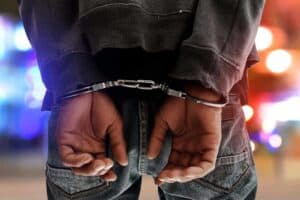A prominent Chinese human rights attorney has been charged with "inciting subversion of state power" and will be held in isolation far from his home, his lawyer said Monday.

Yu Wensheng, 50, was initially charged with “disrupting a public service” after he was detained by a dozen police officers as he left his Beijing apartment to walk his son to school on January 19.
But on Saturday police in the eastern city of Xuzhou, Jiangsu province, added the more serious subversion accusation, which carries a maximum prison sentence of 15 years, five times longer than the first charge, according to defence lawyer Huang Hanzhong.
Police also told his family members that Yu will be held under “residential surveillance at a designated place”, Huang told AFP.
Best known for suing the Beijing government over the city’s once chronic pollution, Yu has been a persistent voice for reform despite an increasingly severe crackdown on activism under President Xi Jinping.
Hours before his detention, he had circulated an open letter calling for five reforms to China’s constitution, including the institution of multi-candidate presidential elections.
It is unclear why Xuzhou police became involved although in recent years, other rights lawyers’ cases were handled by jurisdictions far from defendants’ hometowns.
Under “residential surveillance” rules in cases concerning national security, suspects can be held for up to six months incommunicado in unofficial jails without access to lawyers.
The Xuzhou public security department could not be reached for comment on Monday.
“I don’t know if Beijing police will remain involved. After Yu is transferred, I will go to Xuzhou to make a request with authorities to meet him,” Huang said.
Patrick Poon, China researcher at Amnesty International, said Yu faces a “high risk of torture and other ill-treatment”.
“The purpose of placing him under residential surveillance with the charge of ‘inciting subversion’ is to silence him for at least six months,” Poon said, while noting that police often slap arbitrary charges on human rights defenders.
Yu had said that in 2014 authorities imprisoned and tortured him for 99 days for allegedly “disturbing public order”.
Beijing has stepped up its crackdown on civil society since President Xi Jinping took power in 2012, tightening restrictions on freedom of speech and detaining hundreds of activists and lawyers.
For several days beginning on July 9, 2015, more than 200 Chinese human rights lawyers and activists were detained or questioned in a police sweep that rights groups called “unprecedented.”
The “709 crackdown,” as it was later dubbed, marked the largest clampdown on the legal profession in recent history.
Yu was not arrested during the sweep and had continued to express his opinions on legal issues.
Support Local Journalism
Add The Citizen as a Preferred Source on Google and follow us on Google News to see more of our trusted reporting in Google News and Top Stories.






